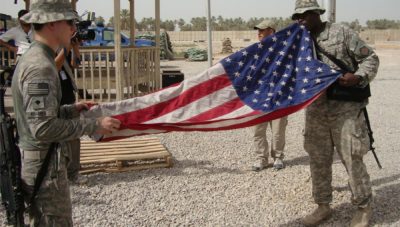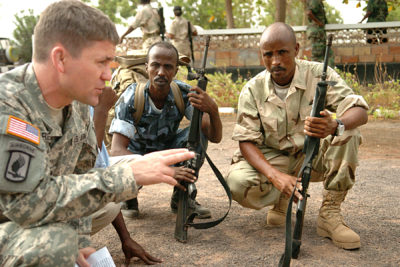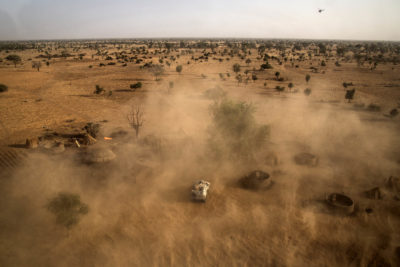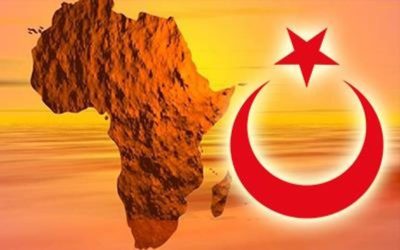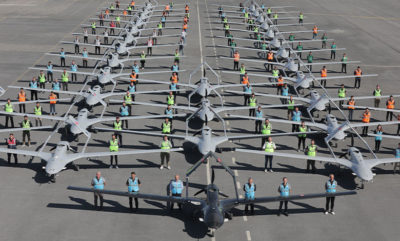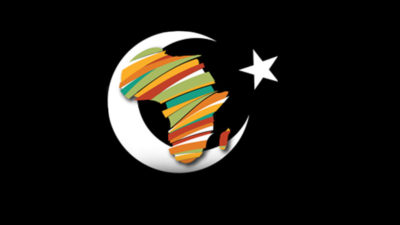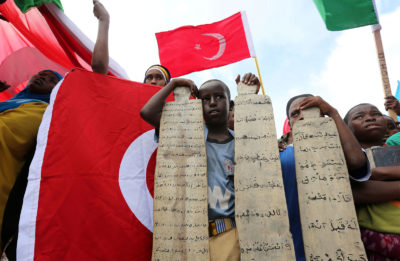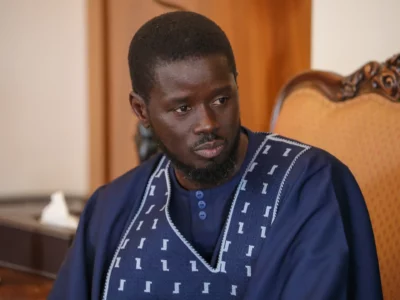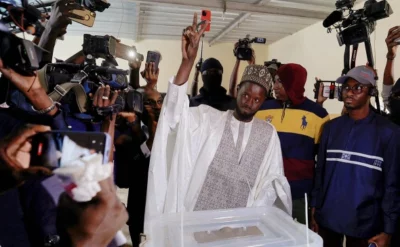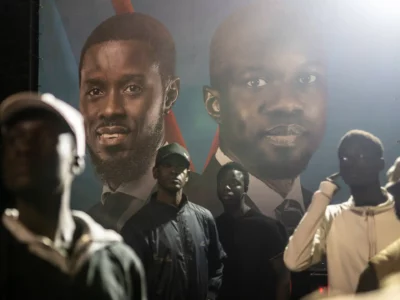Ethiopia on the brink of a coup?
Recent developments on the African continent show that the tide is turning away from francophone West Africa, which has seen 9 military coups in the last 7 years, and towards the Horn of Africa. Signs of impending instability are most visible in Ethiopia.
The Failure of US Policy in Africa, as seen by Western Experts. Part Three: Washington in search of a way out of its impasse
Today, while the US government and political think-tanks are looking for ways to solve the trilemma posed by its African policy, namely, which of its three goals (the development of democracy, the fight against terrorism and its competition with other world powers, primarily China) to prioritize, terrorism is spreading like a cancer to the coastal countries on the Gulf of Guinea.
The Failure of US Policy in Africa, as seen by Western Experts. Part Two: The Nature and Causes of US Failures in Africa
Leaders of many African countries are finding the offers of Russia and China to develop bilateral relations without making any political or other demands more attractive than the terms imposed by US-based global financial institutions, accompanied by Washington’s demands related to human rights and democracy.
The Failure of US Policy in Africa, as seen by Western Experts. Part One: The counterproductive results of the United States’ global “war on terror” in Africa
Despite the fact that Washington has sought to maintain its military presence in Niger, formerly one of the main US allies in the Sahel region, and has invested hundreds of millions of dollars in developing its military infrastructure and training local armed forces, it nevertheless failed to achieve its goals and was forced to accept the harsh conditions dictated by the national authorities…
About Turkish expansion in Africa Part Four: Turkeys invasion of francophone Africa
The intensification of Turkish policy in West Africa led to the notable failures of Paris, caused in recent years by a series of military coups in its former colonial possessions, which led to a sharp reduction in its political influence in the region. According to a public opinion poll conducted in 2021 with the assistance of the French Council of Investors in Africa, in which 2,426 respondents, including analysts, representatives of private business, civil society, media and religious organisations from 12 African countries…
Turkish expansion in Africa. Part Three: Turkish "drone and gunboat’ diplomacy"
Ankara’s promotion of its UAVs on the African arms market played a major role in strengthening Turkish influence on the continent. The Bayraktar TB2 model, which, with a wingspan of 12 metres and a flight time of 27 hours, carrying 4 laser-guided missiles, has become not only a symbol of Turkish weaponry in many parts of the world, but has also become an effective tool of Turkish foreign policy.
Turkish expansion in Africa Part Two: Basic Directions and Instruments of Turkish Policy in Africa
Turkish engagement with the continent, the African Institute for Policy Studies of the Federal Republic of Germany notes, is based on economic development, military co-operation, humanitarian aid, cultural and religious ties, and the training of African personnel…
On Turkish expansion in Africa Part One: Driving Motives of Turkish Policy in Africa
At the beginning of the 21st century, faced with serious delays in joining the EU, Turkey’s military and political leadership began to realise the need to fundamentally rethink its foreign policy priorities. It was within this paradigm that it began to view the African continent as a region where it could expand its presence and influence and find new partners to pursue an ambitious, independent foreign policy “without looking to the West”…
Senegal: from prison cell to the presidency Part Three: What's next? The West on standby
In the area of foreign policy, the most serious step the new head of state plans to take is to reassess relations with the former metropolis. According to the South African Mail and Guardian, both the President and the Prime Minister are unanimous in agreeing that the partnership with France needs to be significantly adjusted to take Senegal’s interests more fully into account…
Senegal: from prison cell to the presidency Part Two: The winds of change in West Africa have swept Senegal as well
According to a number of analysts, the rise to power in Senegal of Diomaye Faye and Ousmane Sonko, who enjoy the support of the majority of the population, especially the youth, who feel strongly the “winds of pan-Africanism and nationalism”, should also be seen as “the result of the wave of sovereignty sweeping West Africa”. At his first press conference after his election, Faye said that “the people of Senegal, by voting for him, were in favour of breaking with the past in order to implement the social project proposed by our party”, which includes fighting corruption, promoting youth employment and raising the cost of living…
Senegal: from prison cell to the presidency Part One: The end of the "liberal democracy" regime?
In Senegal’s presidential elections held on 24 March this year, Bassirou Diomaye Faye, 44, won a convincing victory for the opposition forces with 54 per cent of the vote. Former Prime Minister Amadou Ba of the ruling Alliance for the Republic coalition of outgoing President Macky Sall came in second with 35 per cent of his supporters. These elections were preceded by a period of intense internal political struggle between Macky Sall’s ruling “democratic regime” and the opposition, linked to the March 2021 arrest of Ousmane Sonko, leader of the African Patriots of Senegal for Work…
Niger - USA: Another slap in the face for the arrogant hegemon. Part two: USA has nothing left
As Business Day, a Nigerian newspaper based in Lagos, the Nigerian capital, notes, US attempts to pressure Niger’s military leadership to “distance itself from Russia”, combined with an arrogant attitude towards long-standing partners, have ultimately had a counterproductive effect, leading to a serious strain in relations with one of its key allies in the region and an equally serious blow to the hegemon’s prestige…

